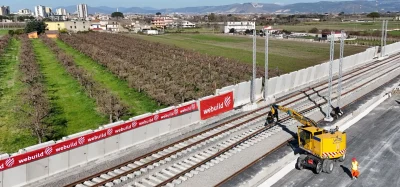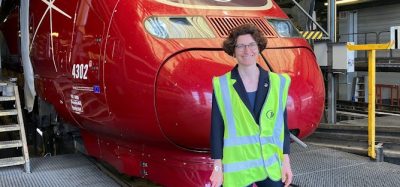NAO report highlights government’s major changes to HS2 programme
Posted: 23 July 2024 | Global Railway Review | No comments yet
NAO’s recent report highlights how the UK government’s changes to the HS2 programme, including cancelling Phase 2 and scaling back Euston station, have led to a reassessment of project scope and management by DfT and HS2 Ltd.


Credit: HS2
In October 2023, the UK government announced significant modifications to the High Speed Two (HS2) programme, which had initially been designed to create a high-speed rail link between London and Manchester via Birmingham. Key changes include the cancellation of Phase 2, which was to extend the railway from the West Midlands to Manchester, and the scaling back of the HS2 station at London Euston.
The Department for Transport (DfT) sponsors the programme, while High Speed Two Limited (HS2 Ltd), a DfT arm’s-length body, is responsible for delivering the project. The government’s decision to alter the programme was influenced by rising costs associated with Phase 1, repeated delays and shifts in travel patterns since the COVID-19 pandemic.
Following this announcement, DfT and HS2 Ltd began evaluating the implications of these changes. Their efforts include defining the revised scope of Phase 1, planning the decommissioning of Phase 2 and determining the future of the Euston station.
The National Audit Office’s (NAO) recent report assesses how effectively DfT and HS2 Ltd are managing these adjustments. It highlights that, after the cancellation of Phase 2, the agencies have taken steps to address immediate risks and outline plans for Phase 1 and property disposal. Despite the reduced scope, the HS2 programme remains complex, requiring clear objectives, a realistic budget and robust risk management to ensure value for both passengers and taxpayers.
The next steps for DfT and HS2 Ltd include defining the new goals of the programme, establishing a feasible budget and enhancing control measures to manage risks and costs effectively.
A spokesperson from the High Speed Rail Group said: “This National Audit Office (NAO) report makes clear the plan the incoming Labour government is inheriting – a truncated HS2, and a West Coast Main Line operating at capacity – is not going to help grow the national economy, nor is it going to allow train performance on the West Coast to return to acceptable levels. A line which fails to reach central London, and which worsens the bottleneck north of Birmingham is an inheritance that needs amendment. High speed rail is essential to increasing capacity across our transport networks. Yet this report shows that current plans would cause the West Coast Main Line to be full up within a decade. What’s needed is extra capacity, not new bottlenecks.”
Railway Industry Association (RIA) Chief Executive, Darren Caplan, said: “The report also highlights the need for the government to urgently provide a coherent plan for HS2 connectivity to Euston station. Delivering the route into central London – without delay – is crucial to avoid changing HS2 from what is supposed to be a strategic piece of national infrastructure into an Acton to Aston line. So getting the right station design at Euston is the next urgent step if we are to get value from all the investment already made.”
Related topics
Related organisations
Department for Transport (DfT), High Speed Rail Group (HSRG), HS2 Ltd (High Speed Two), National Audit Office (NAO), UK Government








